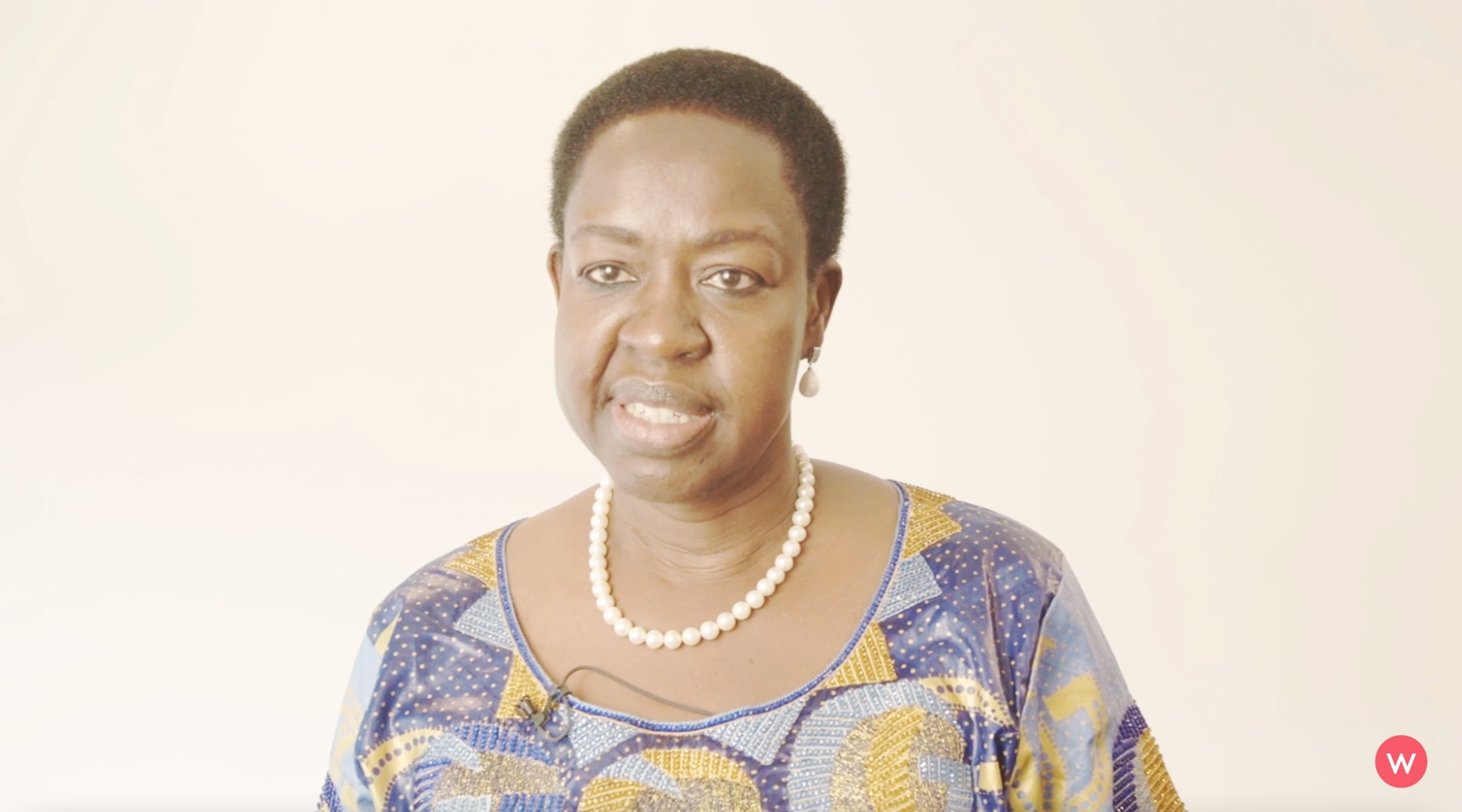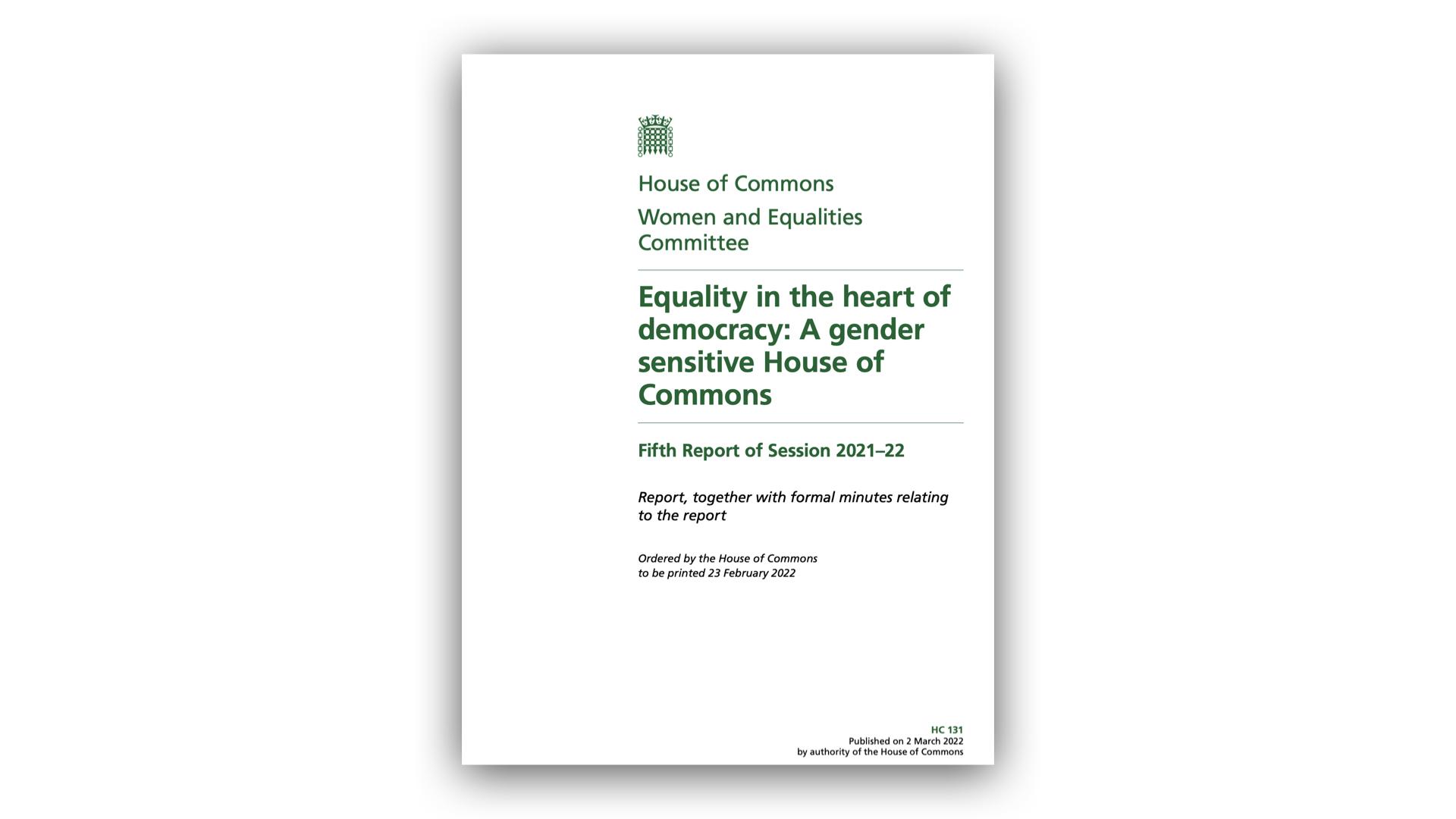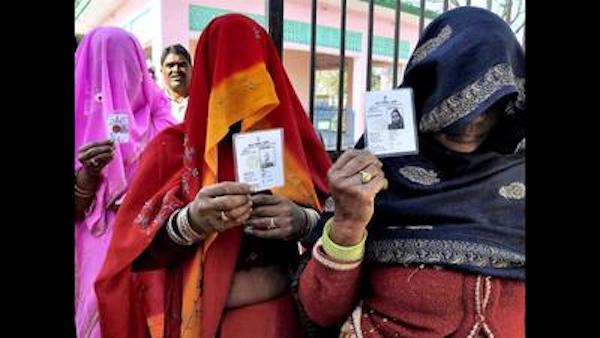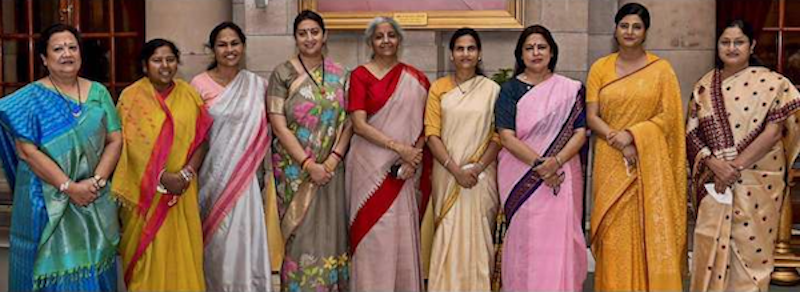Political Parties
In a representative democracy, political parties function as a link between state institutions and local grassroots organizations. It is political parties that aggregate interests, present political alternatives and nominate candidates. As such, political parties play an essential role for the advancement of women and the promotion of equality. In this section, you will find information on the role of political parties in promoting women's political participation.
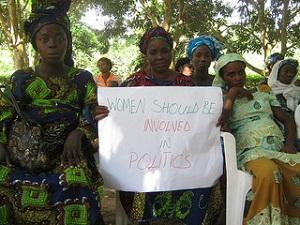
Interviews
Equality in the heart of democracy: A gender sensitive House of Commons
Equality in the heart of democracy: A gender sensitive House of Commons
This is a House of Commons Committee report, with recommendations to government. The Government has two months to respond.
This is a House of Commons Committee report, with recommendations to government. The Government has two months to respond.

Despite efforts to encourage women to both vote and run in local elections in the West Bank, candidates say much work remains to be done.
India: Congress’ idea of fielding more women candidates must not fade away
India: Congress’ idea of fielding more women candidates must not fade away
For nearly all political parties in India, women’s role in politics seems to begin and end as voters. In contrast to this, the Congress’ decision to give 40% tickets to women in UP was a refreshing change.
For nearly all political parties in India, women’s role in politics seems to begin and end as voters. In contrast to this, the Congress’ decision to give 40% tickets to women in UP was a refreshing change.
Tanzania viewpoint: What President Samia has achieved in her first year
Tanzania viewpoint: What President Samia has achieved in her first year
In our series of letters from African journalists, Sammy Awami looks back at how Tanzania has changed in the year since Samia Suluhu Hassan became the country's first female president following the death of President John Magufuli.
In our series of letters from African journalists, Sammy Awami looks back at how Tanzania has changed in the year since Samia Suluhu Hassan became the country's first female president following the death of President John Magufuli.
How are women reshaping India’s political landscape?
How are women reshaping India’s political landscape?
Despite India having had multiple female heads of state, and a progressive and highly diverse political past and present, the inclusion of women in Indian politics continues to be doubted by many countries across the world.
Despite India having had multiple female heads of state, and a progressive and highly diverse political past and present, the inclusion of women in Indian politics continues to be doubted by many countries across the world.

The general political context in 2022 is definitely different from that of 2018. But will the new Lebanese Parliament consist of more than six women following the May 15 elections?

As the world commemorates the 2022 International Women's Day, the plummeting of women's representation in elective office in Africa is alarming.

The environmental leader won more votes than the center candidate Sergio Fajardo without having held public office and with a campaign that began only three months ago.
Pagination
- Previous page
- Page 41
- Next page
